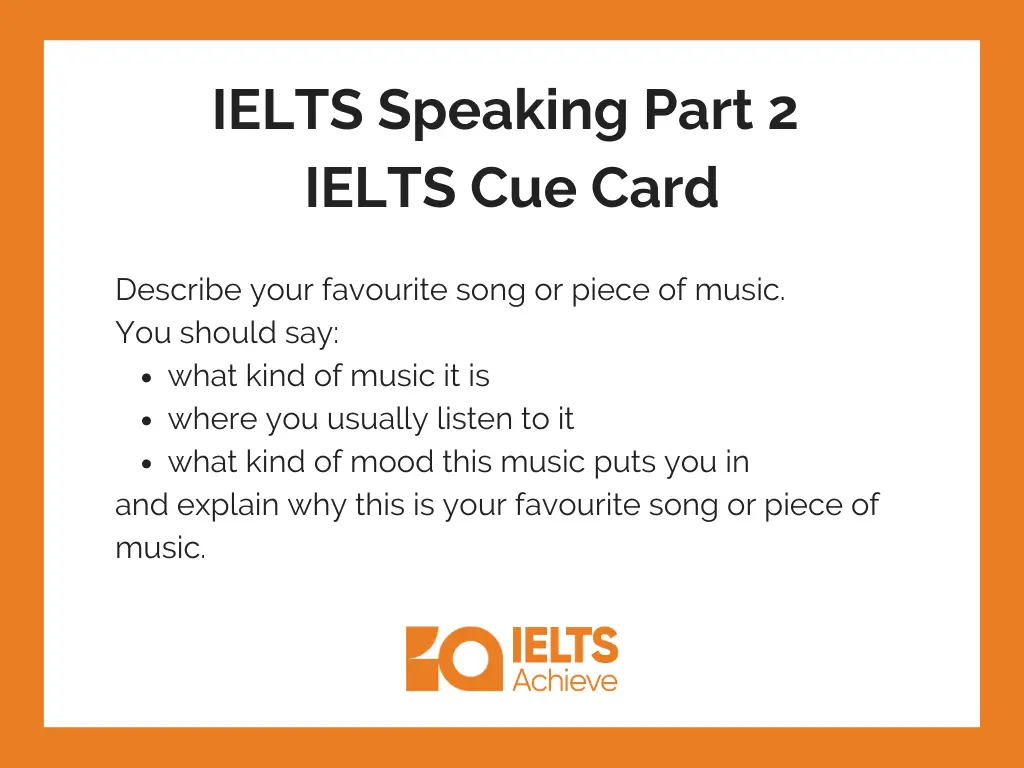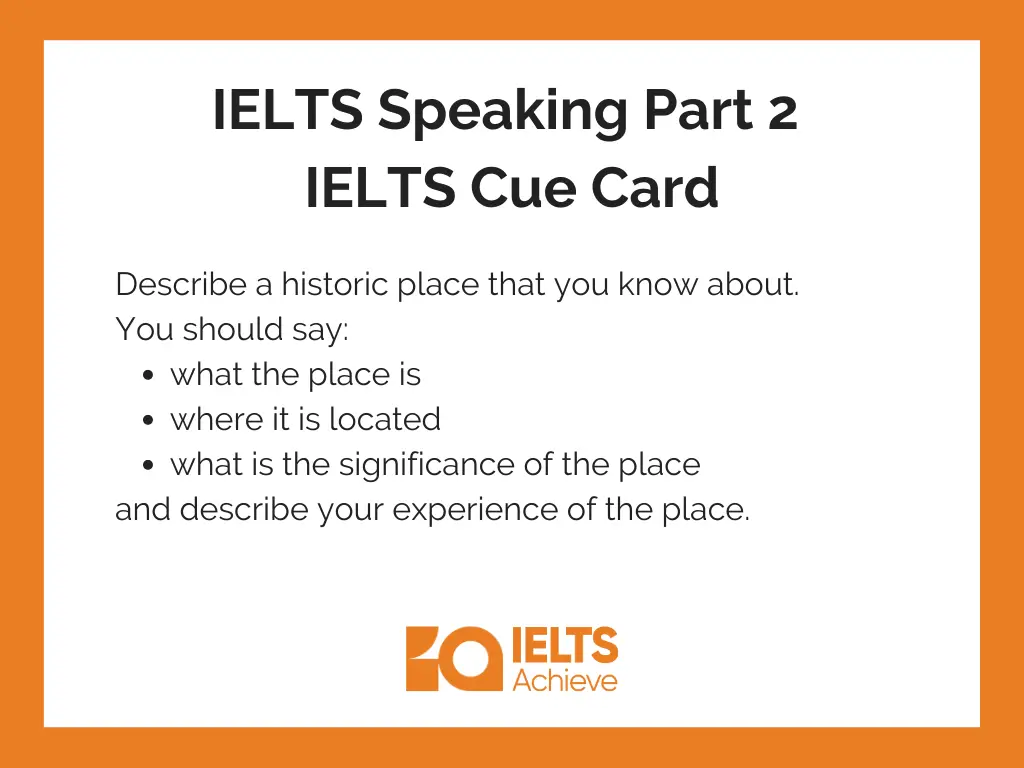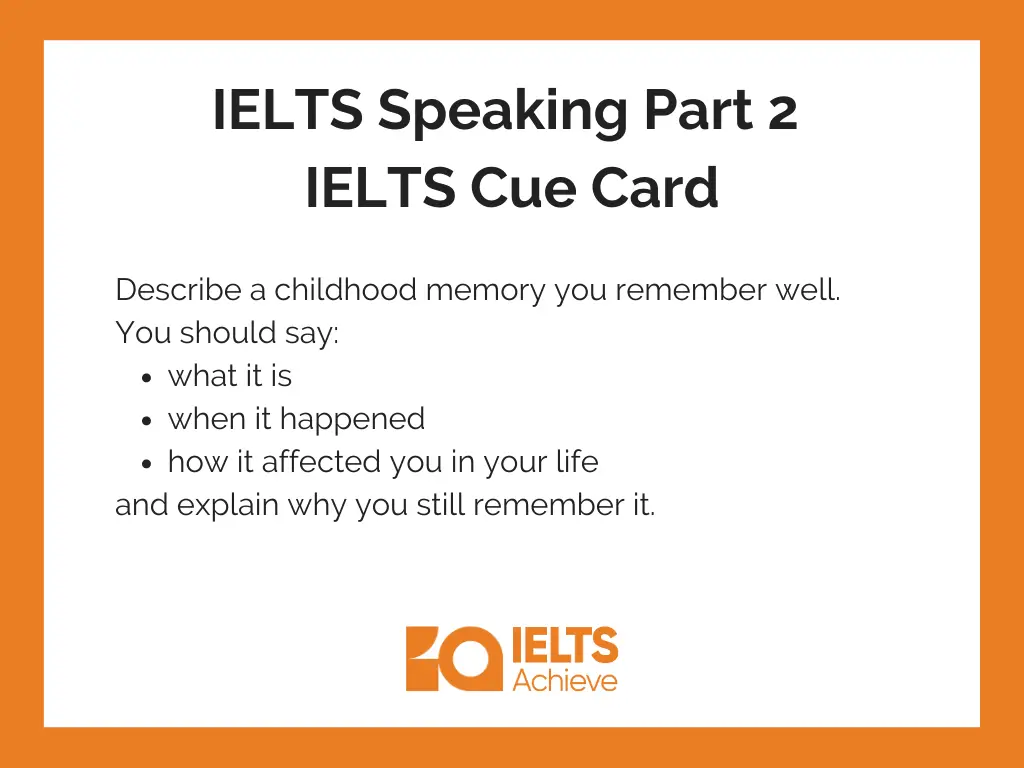
Describe your favourite song or piece of music. You should say: what kind of music it is where you usually listen to it what kind of mood this music puts you in and explain why this is your favourite song or piece of music.
Learn How To Answer IELTS Speaking Test Part 2 : CUE Cards.
Sample Response 1:
One of my absolute favourite pieces of music is “Clair de Lune” by Claude Debussy. It’s a classical piece, specifically from the Impressionist period, which allows the listener to paint a picture or evoke certain feelings or moods, rather than telling a distinct story.
I usually listen to it in the quiet of my bedroom during the evening hours, with dim lighting, as I find it to be the perfect setting. Sometimes, I also play it in the background when I’m reading, as it provides a calm, gentle ambiance without being too intrusive.
Every time I hear “Clair de Lune,” I’m swept away into a mood of introspection and serenity. The piece starts off gently, meandering its way into a fuller, more emotive middle, before settling back into its gentle rhythm. It feels like the musical representation of moonlight – subtle, romantic, and utterly mesmerizing.
This piece remains my favourite due to its timeless beauty and its ability to transport me to a place of calm. In a world that’s always bustling with noise, “Clair de Lune” offers a sanctuary of peace, a brief respite for the soul.
Discover expert tips for discussing food and drinks in the IELTS Speaking section. Click here to access our detailed guide and learn how to describe flavors, cuisines, and dining experiences effectively.
Sample Response 2:
My all-time favourite song is “Imagine” by John Lennon. It belongs to the rock genre, with elements of piano ballad, but what stands out is its profound and poignant lyrics.
I often listen to “Imagine” during my commutes. The hum of the city combined with Lennon’s vision of peace offers a stark but hopeful contrast. It’s also a frequent choice during my reflective moments at home or when I’m surrounded by nature.
“Imagine” puts me in a contemplative mood. It speaks of a world devoid of barriers, where humanity lives in harmony. The very essence of the song, calling for peace and unity, is something I resonate with deeply. The soft piano notes combined with Lennon’s earnest voice make me feel both melancholic and hopeful.
This song stands out for me not only because of its musical composition but also its timeless message. In a world often divided by differences, “Imagine” serves as a gentle reminder of the beauty of unity and the potential for a peaceful coexistence.
Explore Various IELTS Speaking Part 2 Cue Card Questions and Answers.
Recommended Vocabulary:
Impressionist: Pertaining to a style of music that conveys mood and emotion rather than a detailed tone picture.
Example: The impressionist paintings and music from the late 19th century often evoke emotions rather than detailed scenes.
Introspection: The examination of one’s own conscious thoughts and feelings.
Example: During moments of introspection, she would often journal her thoughts.
Meandering: Following a winding path or course.
Example: The river meandered through the valley, creating breathtaking vistas.
Mesmerizing: Holding the attention of someone to the exclusion of everything else.
Example: The ballet performance was so mesmerizing that I forgot all about time.
Poignant: Evoking a keen sense of sadness or regret.
Example: The movie had several poignant moments that brought tears to my eyes.
Ambiance: The character and atmosphere of a place.
Example: The soft lighting and classical music gave the restaurant a romantic ambiance.
Resonate: Produce or be filled with a deep, full, reverberating sound; evoke or suggest emotions.
Example: The speaker’s words resonated with the audience, leading to a standing ovation.
Melancholic: Feeling or expressing pensive sadness.
Example: The cloudy day made him feel melancholic, thinking about days gone by.
Contemplative: Expressing or involving prolonged thought.
Example: The monk led a contemplative life filled with meditation and reflection.
Coexistence: The state of living or existing at the same time or in the same place.
Example: The city is a model of peaceful coexistence between multiple cultures and religions.
Different Cue Card Topics
Personal Experiences: IELTS Cue Card Topics
People and Personalities: IELTS Cue Card Topics
Places: IELTS Cue Card Topics
Objects: IELTS Cue Card Topics
Events: IELTS Cue Card Topics
Experiences and Achievements: IELTS Cue Card Topics
Hobbies and Interests: IELTS Cue Card Topics
Plans and Dreams: IELTS Cue Card Topics
Nature and Environment: IELTS Cue Card Topics
Education: IELTS Cue Card Topics
Work and Careers: IELTS Cue Card Topics
Technology: IELTS Cue Card Topics
Health and Fitness: IELTS Cue Card Topics
Food and Drinks: IELTS Cue Card Topics

